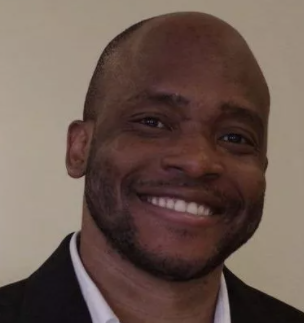Caribbean CBI’s “6 Principles”: What Agents Must Now Do To Sustain The Programs

Kemal Nicholson of Cinvest Migration
IMI Official Partner
What a busy three months it has been.
Anyone offering Caribbean citizenship by investment programs (CIPs) as part of their core services has undoubtedly been working overtime since 2023 rolled around. The past three months have seen a flurry of activity in the region, be it meaningful regulatory updates or changes in central CIU personnel. Just as things seemed to be slowing down, a US-Caribbean conclave in Saint Kitts resulted in six significant provisions Caribbean CBIs must now follow:
- Collective agreement on the treatment of denials between Caribbean states
- Mandatory interviews with applicants
- Enhanced due diligence checks
- Periodic audits of the CBI programs
- Law enforcement-assisted retrieval of revoked or recalled passports
- The complete suspension of Russian and Belarusian applicants from March 31st onward
While the last amendment only affects Grenada, the others will have long-term effects on all Caribbean CIPs. Those effects may be positive or negative, although I personally believe it is the former.
While some may view the US stipulations as high-handed use of a superpower’s authority to meddle in the affairs of smaller developing countries by putting pressure on an essential economic lifeline, the Americans have done something the Caribbean states have struggled to do for the better part of a decade: They brought together all the region’s CIPs for a serious discussion with tangible outcomes.
Since all Caribbean CIPs must now conform to a set of binding regulations, they must work closely together. This situation will undoubtedly broaden the channels of communication between the programs and, hopefully, their cooperation to ensure their sustainability. Just a few years back, price cuts were leading Caribbean CIPs through a ragged race to the bottom. But now that they have a “big brother” intervening, they must band together.
The American involvement comes at an opportune moment; the EU is tightening the noose around anything investment migration-related, and having the US on their side – even if conditionally – gives Caribbean CIPs sturdier ground on which to stand. I am convinced about the ability of Caribbean governments to adhere to the stipulations and make good on their promises to continue improving their programs.
CIP agents, as well, need to chip in to ensure the well-being of the programs. While many of them may consider the results of the US-Caribbean roundtable of little consequence to themselves or their firms, losing these programs would surely mean the end of their business or would at least make a significant dent in their profits. Hence, everyone involved has to chip in and share the burden, and here are the three things all CBI agents can do to help.
#1 – Streamline the interview process
The change that will affect CIP agents directly is the introduction of the interview requirement. Based on the meeting results, it seems Caribbean states can conduct those meetings either in person or virtually. Because it will be more cost-efficient and frictionless, in-person meetings will likely take a backseat to video calls in practically all cases.
And while an interview may not include any representative of an applicant’s CIP agent (which it may, but we still don’t know), the interview result will directly impact all parties involved.
It is, therefore, only logical that CIP agents help Caribbean Citizenship by Investment Units (CIUs) by grasping the interview format, objectives, and requirements, but also in optimizing the process. The first thing that comes to mind here is that CIP agents might participate in the interview if a translation is needed. Local agents can, in many cases, bridge the linguistic gap between the interviewer and the applicant.
Second, agents can help ensure the interview goes smoothly by coaching and preparing applicants. This measure isn’t intended to circumvent the interview’s objective of rooting out any suspicious applicants but to help all parties involved share all the relevant information in a relaxed manner.
Some clients may be nervous heading into an interview or may not be prepared to answer some questions that require certain information or documentation. By preparing applicants, the interview time is shortened, while the efficacy of communicating relevant information is greater, lessening the burden on the interviewer and applicant.
#2 – Understand and enhance due diligence processes
Due diligence is the cornerstone of Caribbean CIP sustainability. It is what most occupies the US and EU, and getting it right means the primary argument of CBI’s detractors holds less water.
Sadly, though, most CIP agents are experts in marketing and sales but lack the technical knowledge of proper due diligence practices. That, however, is easily remedied. A few short courses and purposeful communication with Caribbean CIUs can give the agents the knowledge base they need to elevate their due diligence process.
By understanding how a CIU conducts its background checks, which documents are essential for that process, and any red flags to look for, agents can help systemize the process, shorten the required timeframe, and ensure CIUs have everything in order (at least for that agent’s part) when the audit comes.
#3 – Provide constant feedback
The open lines of communication among CBI programs that resulted from the meeting represent a considerable step forward. But more and richer communication between the programs and the agents is also crucial.
For the most part, agents communicate with CIUs regarding specific cases for their clients. These conversations need to grow. Agents should provide more feedback, whether in the form of statistical data, preliminary due diligence findings, or – most importantly – reports of any wrongdoing that could harm the programs.
CIU should also be more receptive to feedback; encourage it even. Grenada recently took a step in the right direction by once more urging its agents to report any person or firm offering illegal discounts or rebates.
This type of feedback is critical for CIPs, as the public’s knowledge about the industry is superficial, and a lot of politicians in the EU and UK may use any smearing of the program as political leverage.
Agents should report any illegal activity, or even marketing ploys of questionable taste, that may damage the image of a CIP. Caribbean CIUs must encourage firms to come forward by guaranteeing anonymity for those reporting misconduct and non-compliance. Rooting out the bad apples, while providing the CIUs with relevant information, would help elevate the CIPs and shield them from their criticism.
Mr Nicholson has held diplomatic positions from the Caribbean countries to the Russian Federation. Nicholson is the founder of Cinvest Migration, a boutique firm specializing in citizenship by investment.


